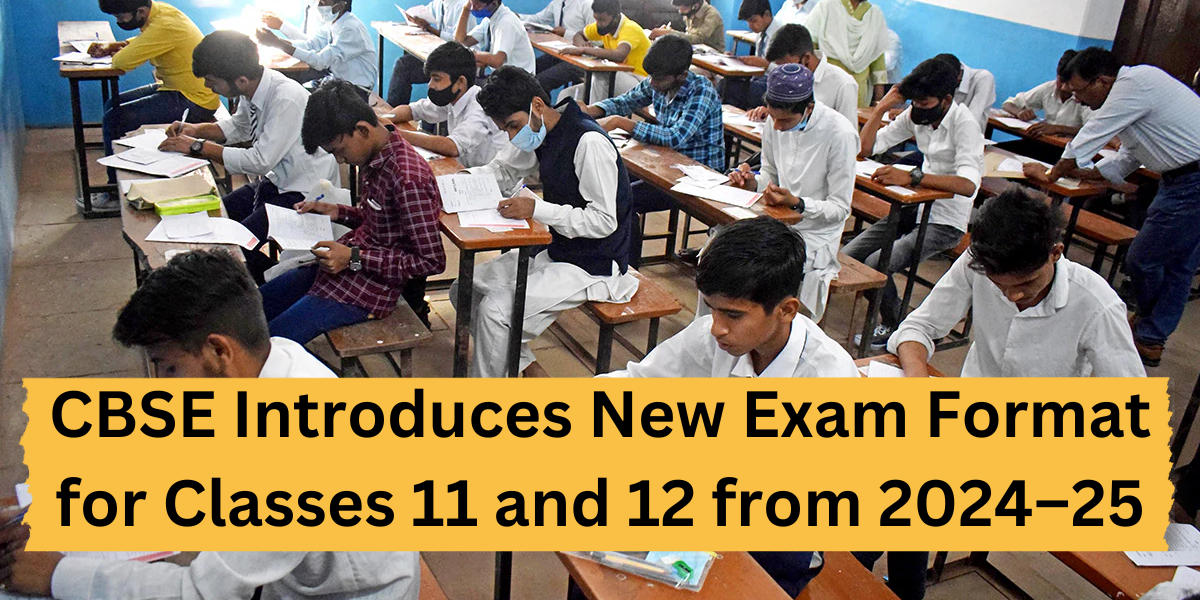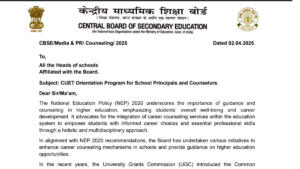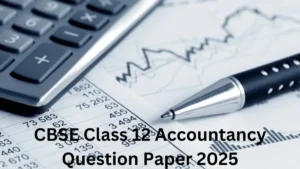Table of Contents
The Central Board of Secondary Education has recently modified the Exam pattern of the year-end examinations for Classes 11 and 12 beginning with the 2024-25 academic session. According to the reports, the new format will prioritize concepts applications, and questions, and the long- types of answers were eliminated.
The percentage of competency-based questions, such as multiple-choice and case-based questions, has been increased from 40% to 50%. In contrast, the percentage of constructed response questions has decreased from 40% to 30%. Read the full blog to know more about the CBSE’s New Exam Format for Classes 11 and 12 that will be implemented from the AY 2024–25.
What is the New Exam Pattern for CBSE Class 11, 12 Exams
Candidates who will take the CBSE class 11 and 12 board exams for the academic year 2024-25 are going to observe an array of changes in the exam framework. CBSE Director (Academics) Joseph Emanuel announced the modification in the new examination format for Class 11 and 12, stating that CBSE has implemented modifications in assessment and evaluation to fit with the National Education Policy (NEP 2020). The CBSE Class 11 and 12 new test format will now include more competency-based questions that assess the application of topics in real-life settings.
Changes in CBSE Class 11, 12 Exam Pattern
The Central Board of Secondary Education (CBSE) has announced major changes to the examination format for classes 11 and 12 beginning in the 2024-25 school year, with a greater emphasis on idea application. Mainly there are three major changes in the exam pattern. Let us take a quick look at the changes that have been implemented in the Class 11 and 12 exam pattern.
- According to the amended guidelines, Class 11 and 12 board exams will include more competency-based questions and fewer constructed response questions.
- The percentage of competency-focused questions in Class 11 and 12 has been increased from 40% to 50%, including MCQs/case-based questions, source-based integrated questions, and other types.
- In contrast, the constructed response questions (short answer/long answer type questions, as per existing pattern) have been lowered from 40% to 30% in the 2024-25 academic session. Additionally, selective-type questions, particularly MCQs, remain the same (20%).
Modifications alignment with NEP 2020 Objectives
In an interview with PTI News Agency, Joseph Emanuel, Director (Academics), CBSE, stated that these revisions correspond with the National Education Policy 2020.
He Said, “The board in accordance with National Education Policy, 2020 has taken multiple steps towards implementation of Competency-Based Education in schools, ranging from aligning assessment to competencies, development of exemplar resources for teachers and students as well as continuous capacity building of the teachers etc,”
“The main emphasis of the board was to create an educational ecosystem that would move away from rote memorization and towards learning that is focused on developing the creative, critical and systems thinking capacities of students to meet the challenges of the 21st century,” he also added.
Emanuel stated that the board is continuing to integrate evaluations and evaluation methods with NEP-2020 for the school year 2024-2025. “Consequently, in the forthcoming session, the percentage of competency-based questions that assess application of concepts in real-life situations included in the question papers of the board has been altered,” he remarked.
Is the CBSE Class 9, 10 Exam Pattern also Changed?
While there are significant changes for Classes 11 and 12 Exam patterns, CBSE has said that there would be no changes to the exam format for Classes 9 and 10, ensuring uniformity across grade levels.The question papers for the year-end board theoretical test in classes IX and X will stay unchanged.
Meanwhile, the National Council of Educational Research and Training (NCERT) has announced the publication of textbooks for Classes 3 and 6 based on the updated syllabus. The NCERT’s decision to launch the textbooks is consistent with the Central Board of Secondary Education’s (CBSE) recent mandate, which requires the adoption of new syllabi and textbooks for Classes 3 and 6 beginning with the forthcoming academic session.



 CBSE to host CUET 2025 Orientation on Ap...
CBSE to host CUET 2025 Orientation on Ap...
 CBSE Class 12 Accountancy Question Paper...
CBSE Class 12 Accountancy Question Paper...
 CBSE Class 10 IT Answer Key 2025, Get In...
CBSE Class 10 IT Answer Key 2025, Get In...










